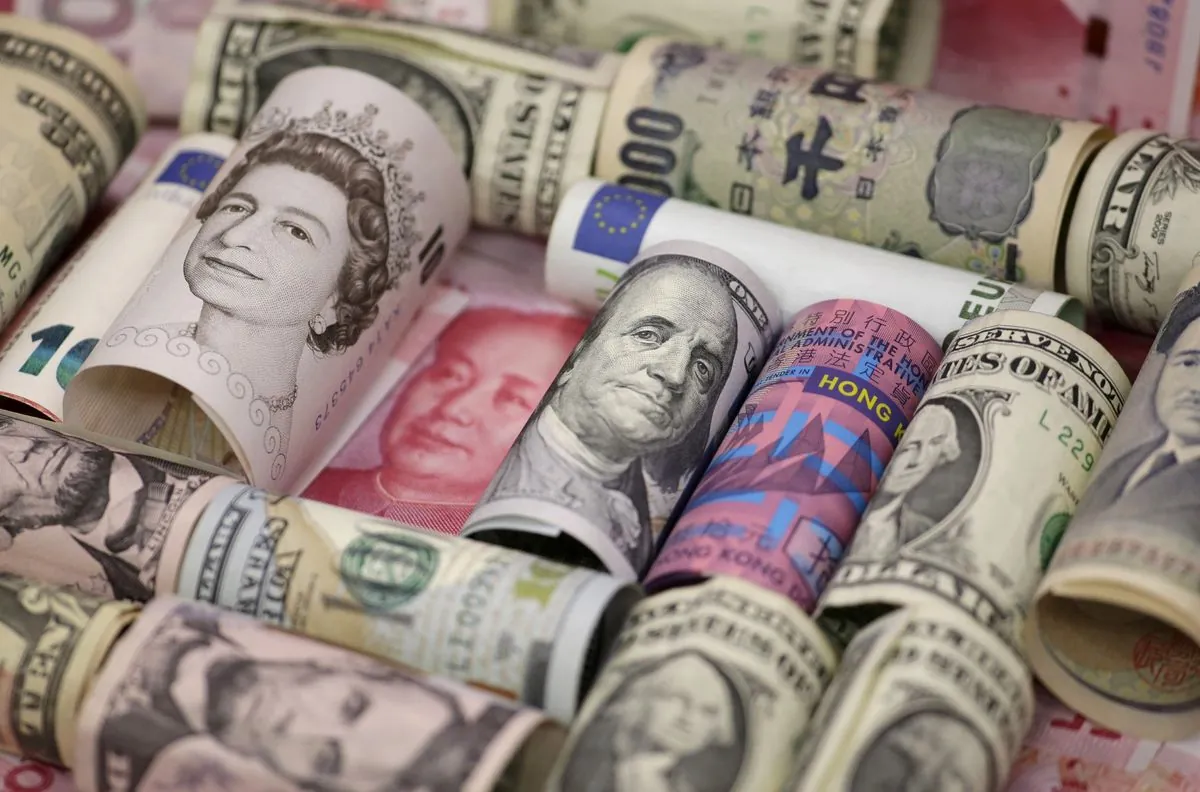The U.S. dollar exhibited mixed performance on July 22, 2024, as financial markets responded to significant political developments and anticipated crucial central bank meetings. The greenback strengthened slightly overall but weakened against the Japanese yen after two consecutive days of gains.
Investors are closely monitoring the upcoming Federal Reserve and Bank of Japan monetary policy meetings scheduled for July 30-31, 2024. Market expectations suggest the Federal Open Market Committee (FOMC) may signal readiness to initiate its easing cycle by September, while the Bank of Japan (BOJ) could potentially raise interest rates, providing support for the yen.
The dollar index, which measures the U.S. currency's value against a basket of foreign currencies, edged up 0.1% to 104.32. Against the yen, the dollar declined 0.3% to 157.10, while it remained relatively stable against the euro at $1.0886.
China's surprise monetary policy moves also influenced currency markets. The People's Bank of China (PBOC) unexpectedly reduced its seven-day reverse repo rate to 1.7% from 1.8%, followed by cuts to one- and five-year loan prime rates. In response, the dollar strengthened 0.1% against the offshore yuan, reaching 7.29.
The cryptocurrency market is preparing for the launch of exchange-traded funds (ETFs) tracking ether, the second-largest digital asset. While this development is seen as a validation of the crypto space, experts are uncertain about the potential influx of new investments compared to the bitcoin ETFs launched in January 2024.
"The ether ETF launch is a sign of validation to the space. Whether the ether ETF brings a lot of new money is unclear. Bitcoin itself has become this kind of isolated asset. And there's not much spillover from bitcoin into the rest of crypto."
In the political arena, Joe Biden's decision to end his re-election campaign has introduced a new element of uncertainty into the currency market. The dollar and Treasury yields initially dipped following the announcement but later recovered. Investors are now considering the potential implications of a second Donald Trump presidency on financial markets.
The Mexican peso showed a notable reaction to Biden's exit, with the dollar falling 0.6% to 17.925 pesos. This movement suggests that market participants are closely watching the evolving U.S. political landscape and its potential impact on North American economic relations.
As the November 5, 2024, U.S. presidential election approaches, currency traders will likely remain vigilant, adjusting their strategies based on political developments and central bank policies in the coming months.
